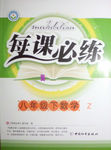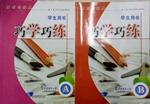题目内容
The only highway to go to work that I had to drive on was closed down due to an accident on the bridge.A truck had hit the bridge and made it 1 for any traffic to go over it.So in order to get to 2 I had to go a number of miles out of my way.
Not being that 3 with this road and not knowing 4 all the pot holes in the road were, I topped a hill and right in my path was a big pot hole.I felt and heard the familiar sound of a flat tire.I 5 as far to the right as possible and stopped.I tried several times to change the tire, but 6 .
There I sat out in the countryside and no way to 7 with anybody.Just then, I looked in my rear(后面的) view mirror and a 8 was pulling out of a pasture(牧场) behind me.I was happy but 9 at the same time.
I was struggling to get the 10 out when this man in the pickup pulled in behind me.He got out to introduce himself and 11 to help me.When he got the spare out we discovered that it is also 12 .He told me he would take the tire and have it 13 and call my husband.
We got the tire fixed 14 he took me back to my car.My husband had been 15 us anxiously there until we got back.The kind stranger stayed there and helped my husband 16 the tire.After they finished we 17 thanked him and offered to pay him for his 18 .
I will never forget his words, "Your thanks are 19 enough pay and I just hope if this ever happens to my wife or daughter someone will be so 20 as to help them."
1.A.busy B.narrow C.unsafe D.fearful
2.A.school B.city C.work D.shop
3.A.satisfied B.clear C.known D.familiar
4.A.what B.where C.when D.which
5.A.pulled B.rode C.placed D.made
6.A.failed B.passed C.managed D.dropped
7.A, catch up B.get in touch C.have to do D.put up
8.A.truck B.pickup C.car D.bike
9.A.scared B.excited C.doubted D.satisfied
10.A.car B.wheel C.spare D.![]() trunk
trunk
11.A.refused B.offered C.pretended D.promised
12.A, broken B.flat C.empty D.old
13.A.sold B.painted C.packed D.fixed
14.A.but B.so C.and D![]() .or
.or
15.A.waiting B.watching C.expecting D.searching
16.A.break B.change C.clean D.repair
17.A.both B.all C.neither D.either
18.A.behavior B.kindness C.bravery D.patience
19.A.more than B.less than C.rather than D.better than
20.A.polite B.active C.nice D.wise
CADCC BADAC BCBAD BBCDA

 每课必练系列答案
每课必练系列答案 巧学巧练系列答案
巧学巧练系列答案John H. Johnson was born in a black family in Arkansas City in 1918. His father died in an accident when John was six. He was reaching the high school age, but his hometown offered no high school for blacks.
Fortunately he had a strong-willed caring mother. John remembered that his mother told him many times, “Son, you can be anything you really want to be if you just believe.” She told him not to depend on others, including his mother. “You have to earn success,” she said. “All the people who work hard don’t succeed, but the only people who do succeed are those who work hard.”
These words came from a woman with less than a third grade education. She also knew that believing and hard work don’t mean everything. So she worked hard as a cook for two years to save enough to take her son, who was then 15, to Chicago. Chicago in 1933 was not the promised land that black southerners were looking for. John’s mother and stepfather could not find work. But here John could go to school, and here he learned the power of words---as an editor of the newspaper and yearbook at Du Sable High School. His wish was to publish a magazine for blacks.
While others discouraged him, John’s mother offered him more words to live by: “Nothing beats a failure but a try. ” She also let him pawn(典当)her furniture to get the $500 he needed to start the Negro magazine for blacks.
It is natural that difficulties and failures followed John closely until he became very successful. He always keeps his mother’s words in mind.: “Son, failure is not in your vocabulary!”
Now John H. Johnson is one of the 400 richest people in America---worth $150 million.
【小题1】John’s mother decided to move to Chicago because_______.
| A.his father died when John was very young. |
| B.life was too hard for them to stay on in their hometown |
| C.John needed more education badly |
| D.there were no school for Negroes in their hometown |
| A.didn’t believe in or depend on others |
| B.thought one could be whatever one wanted to be |
| C.believed one would succeed without working hard |
| D.thought no one could succeed without working hard. |
| A.if you try, you would succeed |
| B.a failure is difficult to beat, even if you try |
| C.a try is always followed by a failure |
| D.no failure can be beaten unless you try |
John H. Johnson was born in a black family in Arkansas City in 1918. His father died in an accident when John was six. He was reaching the high school age, but his hometown offered no high school for blacks.
Fortunately he had a strong-willed caring mother. John remembered that his mother told him many times, “Son, you can be anything you really want to be if you just believe.” She told him not to depend on others, including his mother. “You have to earn success,” she said. “All the people who work hard don’t succeed, but the only people who do succeed are those who work hard.”
These words came from a woman with less than a third grade education. She also knew that believing and hard work don’t mean everything. So she worked hard as a cook for two years to save enough to take her son, who was then 15, to Chicago. Chicago in 1933 was not the promised land that black southerners were looking for. John’s mother and stepfather could not find work. But here John could go to school, and here he learned the power of words---as an editor of the newspaper and yearbook at Du Sable High School. His wish was to publish a magazine for blacks.
While others discouraged him, John’s mother offered him more words to live by: “Nothing beats a failure but a try. ” She also let him pawn(典当)her furniture to get the $500 he needed to start the Negro magazine for blacks.
It is natural that difficulties and failures followed John closely until he became very successful. He always keeps his mother’s words in mind.: “Son, failure is not in your vocabulary!”
Now John H. Johnson is one of the 400 richest people in America---worth $150 million.
1.John’s mother decided to move to Chicago because_______.
|
A.his father died when John was very young. |
|
B.life was too hard for them to stay on in their hometown |
|
C.John needed more education badly |
|
D.there were no school for Negroes in their hometown |
2.John’s mother________.
|
A.didn’t believe in or depend on others |
|
B.thought one could be whatever one wanted to be |
|
C.believed one would succeed without working hard |
|
D.thought no one could succeed without working hard. |
3.The sentence “Nothing beats a failure but a try” means _______.
|
A.if you try, you would succeed |
|
B.a failure is difficult to beat, even if you try |
|
C.a try is always followed by a failure |
|
D.no failure can be beaten unless you try |